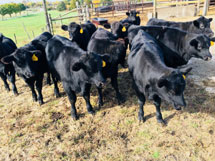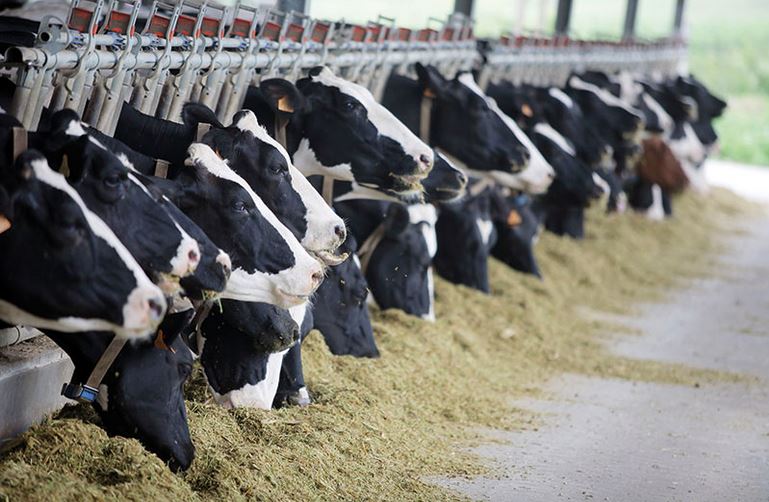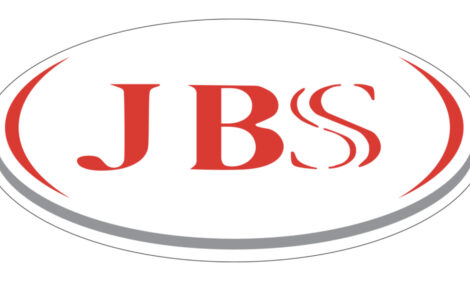



New rapid Actiphage test for Johne's disease and bovine TB makes progress
Funding supports research and development of new test for hard-to-detect mycobacterial diseases.Johne’s disease, a wasting condition of cattle, costs the Canadian dairy industry an estimated $90 million a year through loss of production. Now, advisory services and funding from the National Research Council of Canada Industrial Research Assistance Program (NRC IRAP) is enabling PBD Biotech to further research and progress development of its unique Actiphage diagnostic for hard-to-detect mycobacterial diseases, such as Johne’s.
PBD Biotech has set up its Canadian headquarters in Saskatoon and is looking to expand its team, to validate Actiphage use for cattle and also other species important to the country’s economy, such as elk and deer. The highly sensitive test offers the potential for early detection of infection, boosting productivity within the agricultural industry, helping disease control and elevating dairy quality assurances.

Luis Martin, Managing Director of PBD Biotech Canada, comments: “Actiphage is the first assay capable of directly detecting live infectious mycobacteria at such an early stage and we are unaware of any competitor that can compare in performance, cost or simplicity.
“With the advisory services and funding from NRC IRAP, supporting our own investment, we are keen to progress this test, enabling Canada’s agricultural and dairy industries to be among the first to benefit from early detection of globally important diseases such as Johne’s and bovine TB.”
There are a number of studies that suggest there may be a relationship between the mycobacteria that causes Johne’s disease in livestock and Crohn’s disease in humans (Mycobacterium avium subsp. paratuberculosis, MAP). Research also shows low levels of live mycobacteria are able to survive the pasteurisation process in milk and other dairy products, including infant formula.
Actiphage takes just a few hours to detect viable mycobacteria – unlike current tests, which can take up to three months to provide a result – offering the potential for a rapid quality assurance test for bulk milk.
The epidemiology of Johne’s disease is poorly understood, so a single-day test also opens the opportunity for field-based, pen-side or point-of-care testing in the future, allowing better insights into the progression of the disease and understanding of its potential for animal-to-human transmission.
PBD Biotech first showcased its novel technology to the Canadian agri-food industry through its involvement in the 2017 Saskatoon Regional Economic Development Authority’s (SREDA) HARVEST Programme and subsequently decided to locate an office in the region.
Alex Fallon, President and CEO of SREDA, explains how the HARVEST Agriculture Technology Programme provided an introduction to Saskatchewan for the company: “SREDA hosted PBD Biotech’s first visit to Saskatoon as part of our 2017 Agriculture Technology HARVEST Programme. This allowed PBD Biotech to demonstrate its innovative technology to potential collaborators, building connections with Saskatchewan’s thriving ag-tech industry and ultimately leading to the establishment of PBD’s Canadian subsidiary in Saskatoon. We are delighted to see PBD receive NRC IRAP funding and look forward to its continued success and deepened ties with our province.”
Since establishing its Saskatoon headquarters in 2018, PBD has initiated trials with University of Calgary Professor Dr Jeroen de Buck, as part of this Natural Sciences and Engineering Research Council of Canada (NSERC)-approved programme monitoring Johne’s disease in dairy cattle, and also has a strong working relationship with the International Vaccine and Infectious Disease Organization (VIDO-Intervac).
Actiphage will be evaluated and registered with the Canadian Food Inspections Agency (CIFA) for detection of bovine TB and kits will be available for research. Canadian researchers will look to expand the use of Actiphage as a diagnostic for other infectious diseases of interest to Canadian health, such as human TB, E coli and Salmonella.
Mark Hammond, CEO of PBD Biotech, adds: “Through its support, NRC IRAP will ensure Canada is at the forefront of implementing new diagnostics, such as Actiphage, in the fight against TB and other devastating diseases; taking a lead in future innovation and establishing export markets.”



